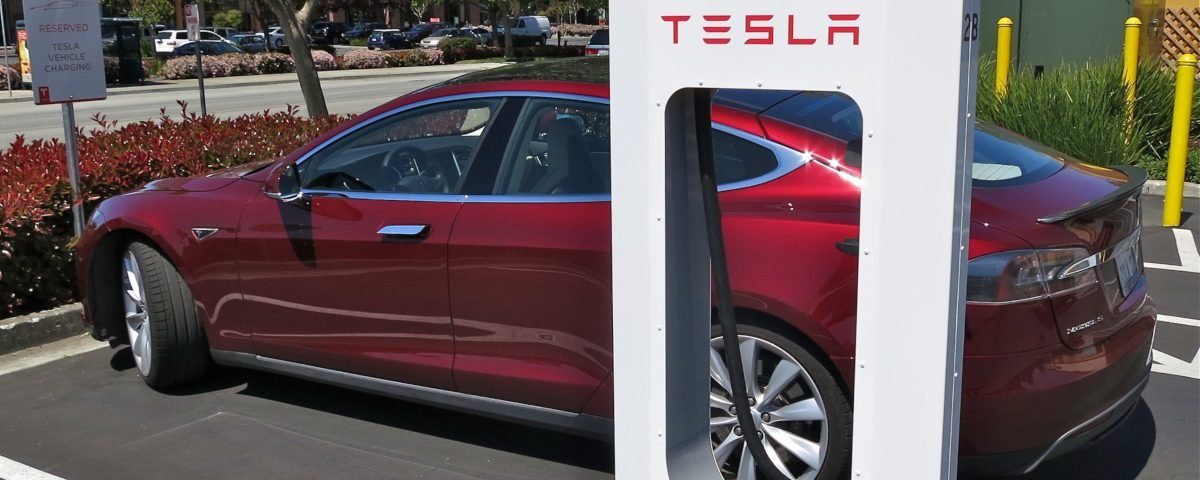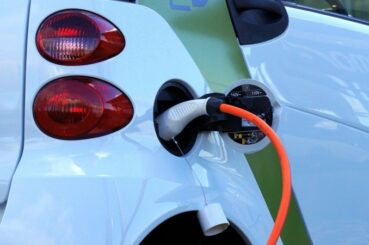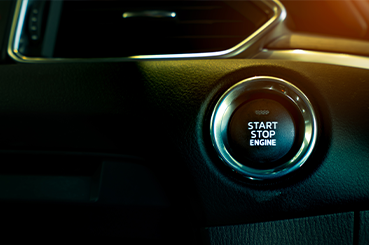The rise of electric is well and truly upon us, with more people making the change from conventionally fuelled vehicles to electric cars. Not only are people keen to save on fuel costs, but there is more pressure than ever before to reduce carbon emissions. Plus for those living in cities, an electric car can be a great way to reduce motoring costs by avoiding the congestion charge.
However, swapping to an electric car is still a worry for many motorists. Making the switch from filling your car up at the pump to charging can be daunting and people still have lots of questions, like how to charge an electric car, or how much does it cost to charge an electric car?
To ease your electric car motoring worries, we’ve put together a comprehensive guide on how to charge an electric car, covering charging an electric car at home, to using public electric car charge points and even the current state of the UK’s charging network.

Electric car charging at home
Charging at home is the most sensible option for the long-term running of your electric car. There are really just two options when it comes to charging your electric vehicle at home; using the existing three-pin plug system in your house or installing a dedicated 3kWh or 7kWh electric car home charging point. The benefit of the three-pin plug system is that it does not result in any additional outlay. However, the downside is that charging takes longer and many manufacturers don’t recommend using a normal socket as the sole charging method.
Installing a dedicated 3kWh or 7kWh charger is the best option, as you get quicker charge times and the car is charged in the way it was designed to. However, the initial cost of buying a home charger can be expensive. A dedicated home charger can range from £500 to £1,500 plus installation fees. Some manufacturers offer a discount on the charger if you buy it at the same time as your electric car. Plus government grants are still available for electric car home charging points, albeit with some qualifying criteria, and these can significantly reduce the cost of installing a dedicated home charging point.

How much does it cost to charge an electric car at home?
Once your home charger is installed, you will really start to notice the lower cost of electric motoring. According to the Government’s Go Ultra Low campaign, a conventional car costs 12p per mile to run, while electric vehicles cost as little as 3p per mile. However, the actual cost of charging an electric car in the UK is hard to quantify as people have different energy costs and tariffs. A good value tariff costing around 12p per kWh would enable you to fill a Nissan Leaf to the maximum range with a 7kWh charger for under £7. This is around a £20 saving for the equivalent miles in a petrol or diesel car.
While charging an electric car can seem strange to start with, it soon becomes second nature to hook your car up and charge it overnight, just like you would your mobile phone. Charging at night is usually the easiest option so many people find that choosing an overnight electricity tariff can help them save even more money.
Electric car charging at home with no driveway
In Britain, a significant challenge looms for approximately 40% of households that lack off-street parking. This staggering statistic translates into a considerable portion of the population facing a hurdle in accessing convenient home charging for their vehicles.
The absence of off-street parking significantly inhibits the installation of home chargers, leaving many without the ease and accessibility of powering up their vehicles conveniently at home. This issue not only poses a logistical problem but also raises concerns regarding the practicality and widespread adoption of electric vehicles, potentially hindering the nation’s transition towards a more sustainable and eco-friendly mode of transportation.
So, if home charging is not an option for you, or you want to know how to charge an electric vehicle on longer journeys, then you’ll need to know more about public electric car charge points.
Charging at a public charge point
When they were first introduced most public chargers required you to have an RFID card which could be ordered online, for you to be able to charge your vehicle. However, nowadays it is more common for public chargers to be operated via an app you can download on your phone.
Different charge points use different apps which means you may need to download and register your details with a few different charge apps so that you aren’t limited when on a journey. However, there are some charge points out there that require no app or special card and work on a simple pay-per-kWh basis.

How much does it cost to charge an electric car at a station?
The cost of public electric car chargers varies massively. Some workplaces, hotels and supermarkets are offering free charging, so you can charge while you work, sleep or shop. However, the availability varies from company to company, for example, Lidl’s PodPoint chargers are currently free to use, whereas Tesco is charging around £6 for 30 minutes of charging (approximately 100 miles).
For the most part, public electric car charge points will cost you. Some apps operate on a ‘pay as you charge’ basis while others operate on a ‘pre-payment’ basis, meaning you can top-up your account and any money owed is automatically deducted when you use a charging point.
The largest provider of public charging stations in the UK is Polar. They have more than 6,500 charging points up and down the country. Chargemaster runs the service and offers a few different charging options:
– Polar Plus – this subscription service costs £7.85 a month which enables you to connect to the Polar network for free and at a lower charge per kWh rate.
– Polar Instant – is a pay-as-you-charge-service with electric car charge points having a set admin fee and then a varying charge per kWh rate.

Just like with fuel, you will find that public chargers on the motorway network are more expensive than in other places. Some of this is due to supply and demand, however, motorway charge points are often rapid chargers so offer an enhanced and speedy service.
Ecotricity chargers which are common on the motorway network cost a set fee to plug in, and then a pence per kWh charge. Most of these chargers are so quick you won’t need to be plugged in for more than forty-five minutes; making them perfect for a quick lunch stop at the service station.
Tesla has its own SuperCharger Network across the country, but this is exclusively for Tesla owners. Many of the first to invest in these cars enjoy cost-free top-ups. However, if you have a newer Tesla model, you have to pay a subscription fee to use the chargers.

The current state of the UK’s charge point network and its future
Range anxiety remains one of the top reasons people are cautious about making the jump to a fully electric vehicle. But, how much of a problem is this given our current public electric charging network?
Data from Deloitte suggests the UK will need to add around 28,000 public charging points, in order to service the estimated seven million electric vehicles predicted to be on the road by 2030. Research also suggests that the cost of delivering the infrastructure required will be around £1.6 billion.
There are currently around 13,500 charging points in the UK, and there are various companies, like ZapMap and Pod Point App, that provide details on the charging network. This includes information on the cost of charging and functionality, so you have all the information you need before you stop. These apps are extremely useful when you are heading on a long journey, as you can plan the best places to stop to charge up and can quickly identify another charger should the one you planned to use not be available.
AC Chargers are currently the most dominant technology and make up 83% of public chargers within the UK. However, DC chargers, which are much quicker, are growing in popularity. It is thought, that investment in DC charging will help increase the viability of electric cars long-term viability.

Will an electric car suit your lifestyle?
If you plan to charge your car at home or at work you should be able to run an electric car for a fraction of the cost of a petrol or diesel engine car. What’s more, you can charge your car while you are either sleeping or working, so it should have no impact on your daily life. In fact, it will save you time as there will be no need for the weekly trip to the fuel station. However, long journeys will still require careful planning and driving to ensure you don’t run out of power.
However, if you have no access to either a home or work charging point, you may find life with an electric vehicle slightly more tying. You will have to travel to a charging point and wait for your car to charge up. If you can use a public charger at a supermarket, this shouldn’t be too much of a hassle as you can simply charge up while doing your shopping. Furthermore, relying on charging up on public chargers will be more expensive than using a dedicated home electric car charge point, although will usually still offer savings over a conventionally fuelled vehicle.
The most practical long-term use of electric vehicles remains a mixture of home and public charging. Home charging is ideal for your day-to-day commute, while public charging can be utilised when you head on longer journeys.
When correctly planned, stopping mid-journey for a top-up charge shouldn’t be a problem. The majority of motorways feature rapid charging facilities, so you can use the stop as a chance to stretch your legs or grab something to eat.
However, bear in mind that some far-flung places, like the Scottish Highlands, currently have a limited public charge network so may be off-limits or require detailed planning if you plan to drive up there in an electric car until the charging network grows.




